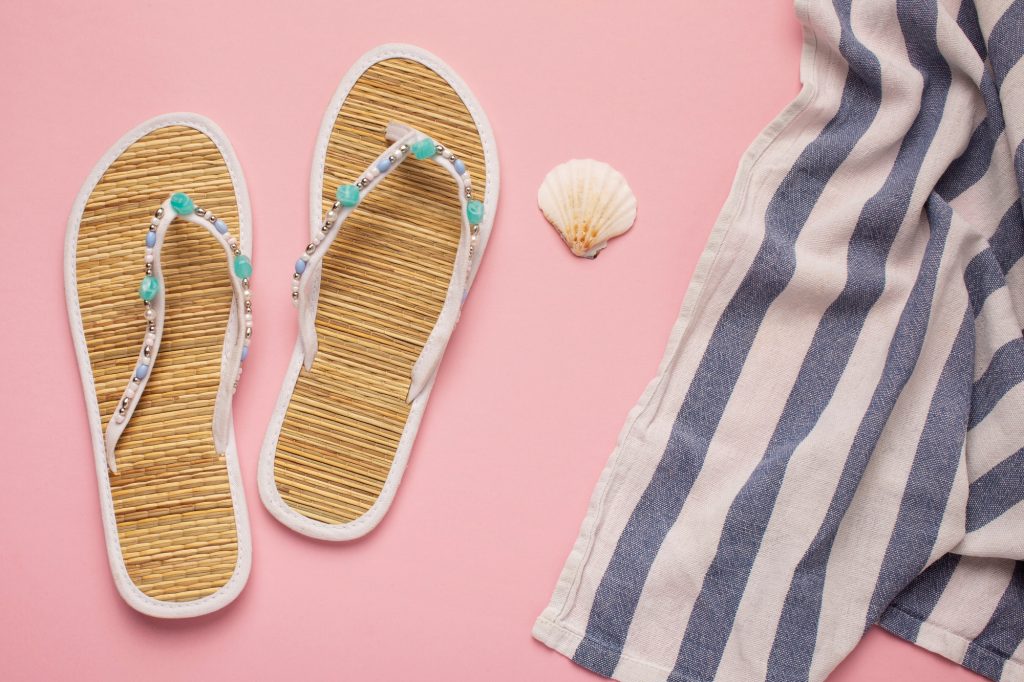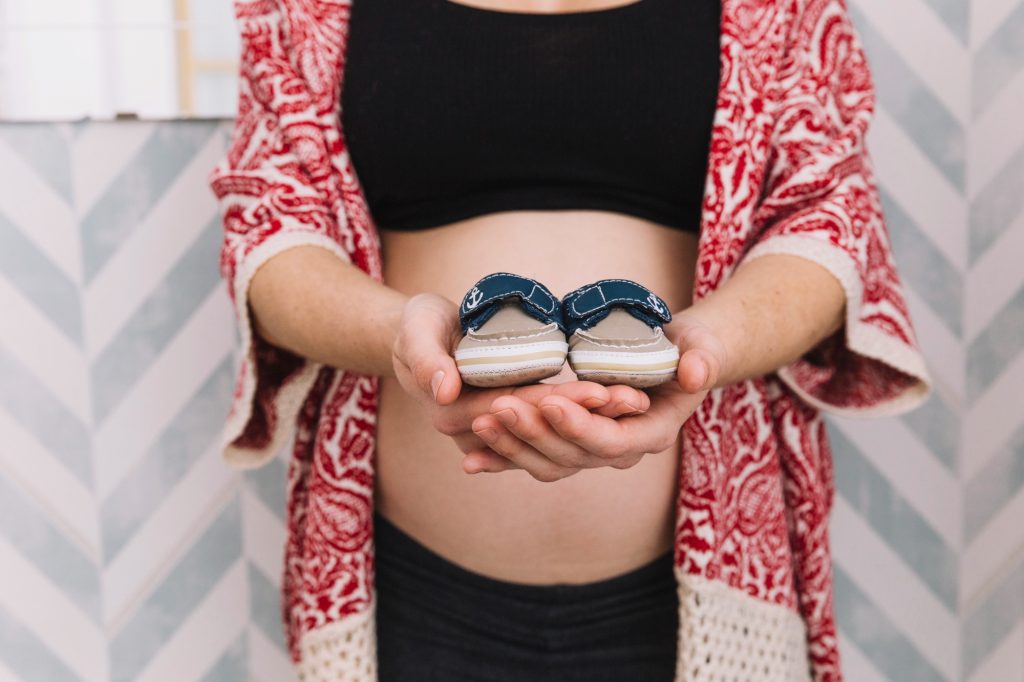Discover whether pregnant women should steer clear of flip-flops and unsupportive sandals.
Should Pregnant Women Avoid Wearing Flip-Flops or Unsupportive Sandals?
Pregnancy is an exciting and transformative time in a woman’s life. As your body goes through changes, it’s important to make sure you’re taking care of every aspect of your health, including your feet. Yes, you heard it right – your feet! Those little guys that carry you from place to place are important too. But, should pregnant women avoid wearing flip-flops or unsupportive sandals? Let’s dive into the world of footwear and pregnancy to find out.

Understanding Footwear and Pregnancy
During pregnancy, your body goes through numerous changes to prepare for childbirth. One of these changes involves the release of hormones that loosen ligaments and joints throughout your body, including your feet. As a result, many pregnant women experience changes in their feet, such as flattening and widening.
With these changes in mind, it becomes crucial to provide proper support to those precious feet of yours. Your feet bear the weight of your growing baby bump, which places extra pressure on already stressed-out arches. Therefore, wearing the right footwear and giving your feet the TLC they need is essential.
The Importance of Proper Foot Support During Pregnancy
When it comes to foot support, pregnant women should pay close attention. Wearing unsupportive footwear like flip-flops or sandals that don’t provide adequate arch support can lead to a world of discomfort. As your body changes during pregnancy, the arches of your feet may flatten or even collapse, making them more susceptible to pain and discomfort.
Proper foot support during pregnancy is vital to alleviate the strain on your feet and prevent potential issues. By wearing supportive shoes with good arch support, you can help distribute your body weight evenly and reduce the pressure on your feet. This, in turn, can help alleviate common foot problems experienced during pregnancy, such as arch pain, heel pain, and swollen feet.
How Pregnancy Changes Your Feet
Pregnancy can bring about some unexpected changes in your feet. As the ligaments in your feet loosen, your arches may flatten or even collapse, leading to a condition called overpronation. Overpronation refers to the excessive inward rolling of the foot, which can put strain on your ankles, knees, hips, and lower back.
Aside from overpronation, pregnancy can also cause other foot-related issues. Hormonal changes can lead to fluid retention, which may result in swollen feet and ankles. Additionally, the extra weight gained during pregnancy can put additional pressure on your feet, leading to discomfort and fatigue.
Furthermore, the changes in your feet can affect your balance and posture. With altered foot mechanics, you may find yourself feeling off-balance or experiencing difficulties maintaining proper posture. Simple tasks like walking to the bathroom or going for a short stroll can suddenly feel like a challenging trek up Mount Everest.
Understanding how pregnancy changes your feet is crucial in finding the right footwear to support them. By choosing shoes with proper arch support, cushioning, and a wide toe box, you can help alleviate the discomfort and potential issues associated with pregnancy-related foot changes.
The Risks of Wearing Flip-Flops and Unsupportive Sandals
Oh, flip-flops. They may be cute, breezy, and perfect for a day at the beach, but are they really pregnancy-friendly? Let’s take a closer look at the risks associated with wearing flip-flops or unsupportive sandals during pregnancy.
When it comes to footwear during pregnancy, comfort and support should be your top priorities. Unfortunately, flip-flops and unsupportive sandals often fall short in these areas. While they may seem like the ideal choice for warm weather, they can actually pose a number of potential foot problems.
Potential Foot Problems from Unsuitable Footwear
Flip-flops and unsupportive sandals offer minimal cushioning, shock absorption, and arch support. This lack of support can lead to various foot problems like plantar fasciitis, tendonitis, and flat feet. Ouch! These conditions can cause pain, inflammation, and even hinder your everyday activities. So, it’s best to steer clear of flip-flops that may turn into trip-flops.
Plantar fasciitis, for example, is a common condition that causes pain in the heel and arch of the foot. It occurs when the plantar fascia, a thick band of tissue that supports the arch, becomes inflamed or irritated. Wearing flip-flops or unsupportive sandals can exacerbate this condition, as the lack of arch support puts additional strain on the plantar fascia.
Tendonitis, another potential foot problem, is the inflammation of the tendons in the foot. This can occur when the tendons are overused or subjected to repetitive stress. Wearing flip-flops or unsupportive sandals can contribute to the development of tendonitis, as the lack of cushioning and shock absorption puts increased pressure on the tendons.
Flat feet, also known as fallen arches, is a condition where the arches of the feet collapse, causing the entire sole of the foot to come into contact with the ground. This can lead to pain and discomfort, as well as an altered gait. Wearing flip-flops or unsupportive sandals can worsen flat feet, as they provide no arch support to help maintain the natural alignment of the foot.
Balance and Stability Concerns
During pregnancy, your center of gravity shifts, making you more prone to balance issues. Wearing flip-flops or unsupportive sandals can worsen the situation since they provide minimal stability. One wrong move, and you could be performing an unwanted acrobatic routine. So, why not choose footwear that keeps you grounded and stable?
Opting for footwear with a supportive sole and a secure strap around the ankle can greatly improve your balance and stability during pregnancy. Shoes with a low, wide heel can also provide added stability, reducing the risk of falls or accidents.
Additionally, choosing footwear with a cushioned insole can help absorb shock and reduce the impact on your joints. This can be particularly beneficial during pregnancy, when the added weight and changes in your body can put extra strain on your feet and ankles.
Remember, pregnancy is a time when your body undergoes numerous changes, and it’s important to prioritize your comfort and well-being. While flip-flops and unsupportive sandals may be tempting, it’s best to opt for footwear that provides the necessary support and stability to keep you and your growing baby safe.
Evaluating Suitable Footwear for Pregnant Women
Enough about footwear that poses risks. Let’s focus on the bright side – shoes designed specifically for pregnant women. Here’s what to look out for when evaluating suitable footwear for your precious feet during this magical time.
During pregnancy, it’s important to prioritize comfort and support when it comes to footwear. Your feet go through a lot of changes during this time, so finding the right shoes can make a world of difference. Pregnancy-friendly shoes should offer excellent arch support, cushioning, and shock absorption. This will help alleviate any discomfort or pain that may arise from the additional weight and pressure on your feet.
When shopping for shoes, look for designs that provide enough room for your feet to expand and breathe. Your feet may swell during pregnancy, so it’s essential to choose shoes that can accommodate this change. Slip-on styles with adjustable straps or laces are a great choice, as they can easily be adjusted to fit your feet comfortably, even if swelling occurs. It’s like giving your feet a hug with every step!
Key Features of Pregnancy-Friendly Shoes
Pregnancy-friendly shoes go beyond just comfort and support. They also prioritize safety and stability. Look for shoes with non-slip soles to prevent any accidental slips or falls, as your balance may be affected during pregnancy. Additionally, shoes with a wide base can provide extra stability and reduce the risk of tripping or twisting your ankle.
Another important factor to consider is breathability. Pregnancy can cause your body temperature to rise, and your feet may sweat more than usual. Opt for shoes made from breathable materials, such as mesh or leather, to allow proper airflow and prevent excessive sweating and odor.

Alternatives to Flip-Flops and Sandals
If you’re thinking about ditching flip-flops and sandals altogether, fear not! There are plenty of stylish and comfortable alternatives to explore. Sneakers with supportive soles are a popular choice among pregnant women. They provide excellent cushioning and shock absorption while offering a sporty and casual look.
Low-heeled shoes are another great option. They provide a bit of elevation without putting too much strain on your feet and legs. Look for shoes with a stable and chunky heel that can provide balance and support.
For those who require additional support, orthopedic footwear can be a pregnant woman’s best friend. These shoes are specifically designed to alleviate foot and leg pain, providing extra cushioning and arch support. Don’t worry; orthopedic shoes have come a long way in terms of style, so you can find fashionable options that suit your taste.
Embrace your inner fashionista and find a pair that screams “mom-on-the-go!” Remember, pregnancy is a beautiful journey, and taking care of your feet is an essential part of it. Invest in suitable footwear that will keep you comfortable, supported, and stylish throughout this magical time.
Tips for Foot Comfort and Health During Pregnancy
Now that we’ve covered the importance of suitable footwear, let’s talk about some easy-peasy tips to keep your feet in top-notch condition during pregnancy.
Foot Care Practices for Expectant Mothers
First and foremost, practicing good foot hygiene is a must. Keep your tootsies clean and dry, and don’t forget to trim your toenails straight across. This helps prevent ingrown toenails and keeps your feet looking fabulous. Additionally, using a moisturizer specifically formulated for feet can help keep your skin soft and supple, reducing the risk of dryness and cracking.
During pregnancy, your feet may experience swelling due to increased fluid retention. To alleviate this discomfort, it’s important to take breaks throughout the day to elevate your feet. Prop them up on a cushion or ottoman and let gravity work its magic. Not only will this help reduce swelling, but it also provides a moment of relaxation in your busy day. Ah, the joy of putting your feet up – quite literally!
Another tip for foot comfort during pregnancy is to wear compression socks or stockings. These snug-fitting garments help improve blood circulation in your legs and feet, reducing the risk of varicose veins and providing relief from any aches or pains.
When to Seek Professional Advice for Foot Pain or Discomfort
If you experience persistent foot pain or discomfort during pregnancy, it’s essential to consult with a healthcare professional. While some degree of discomfort is normal due to the changes happening in your body, severe or prolonged pain may indicate an underlying issue that requires attention.
A healthcare professional specializing in podiatry or obstetrics can help identify any foot conditions or complications that may be causing your discomfort. They can provide appropriate treatment options, such as orthotic inserts or physical therapy exercises, to alleviate your symptoms and keep you walking on cloud nine.
So, should pregnant women avoid wearing flip-flops or unsupportive sandals? While these types of footwear may be convenient and easy to slip on, it’s clear that they may not be the best choice for your precious feet during this magical time. Opting for supportive and comfortable shoes designed specifically for pregnant women can help you embrace motherhood with happy and healthy feet.
Look for shoes with ample arch support, cushioning, and a wide toe box to accommodate any swelling or changes in foot size. Avoid high heels or shoes with narrow toe boxes, as they can put unnecessary pressure on your feet and exacerbate any discomfort you may be experiencing.
Remember, your feet deserve all the love and support they can get! By following these foot care tips and seeking professional advice when needed, you can ensure that your feet stay happy and healthy throughout your pregnancy journey.



